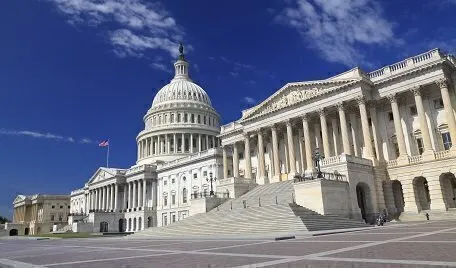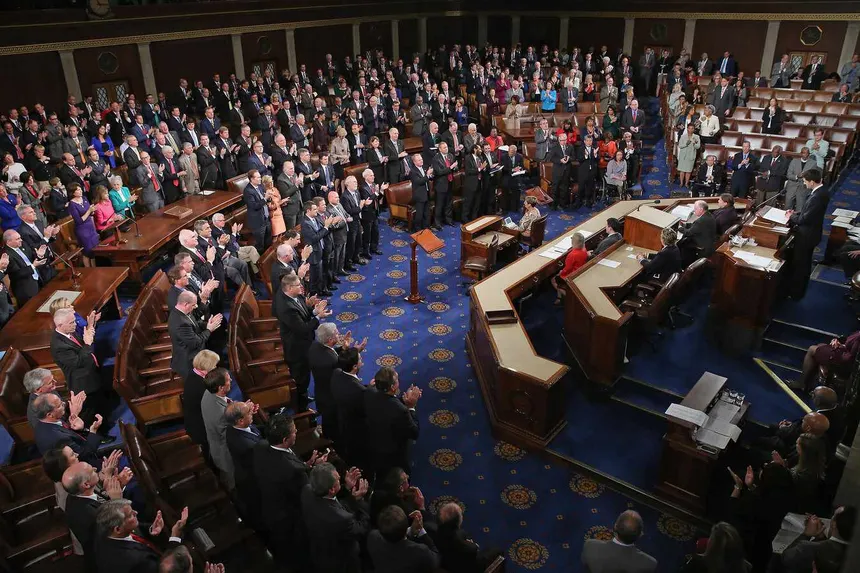Growing Movement Pushes for Congressional Term Limits
The demand for congressional term limits is gaining strong momentum across the United States, with activist groups, political leaders, and everyday citizens calling for a major overhaul in how long lawmakers can stay in office. With public trust in government declining and concerns over career politicians rising, the debate around term limits is intensifying like never before.
Why Are Americans Pushing for Term Limits?
Several factors have contributed to the renewed push for congressional term limits. Supporters argue that long-serving politicians become disconnected from the people they represent and are more likely to prioritize their own interests over those of the public.

Key Reasons Behind the Movement:
- Preventing Career Politicians – Critics argue that many lawmakers stay in office for decades, making politics a lifelong career instead of a public service.
- Encouraging Fresh Perspectives – New leaders bring fresh ideas and prevent stagnation in policies and decision-making.
- Reducing Corruption and Special Interests – The longer politicians remain in office, the more they are influenced by lobbyists and special interest groups.
- Restoring Public Trust – Many believe that term limits can help rebuild trust in Congress by ensuring accountability and reducing political complacency.
The Role of Activist Groups
Several organizations have been at the forefront of advocating for term limits, pushing Congress to take action. Groups such as U.S. Term Limits, Term Limits for U.S. Congress PAC, and various grassroots movements have gained nationwide support.
Their Strategies Include:
- Petitions and Signature Drives – Activists are gathering millions of signatures to demonstrate widespread public support.
- Lobbying Efforts – These groups are pressuring lawmakers to introduce term limit bills.
- Public Awareness Campaigns – Social media, advertisements, and rallies are being used to educate citizens about the benefits of term limits.
- Legal and Constitutional Challenges – Some organizations are exploring legal options to enforce term limits at the state level.

Where Do Politicians Stand?
The issue of term limits has divided politicians along party lines and personal interests. While some lawmakers support the idea, many longtime politicians oppose it.
Supporters of Term Limits:
- Sen. Ted Cruz (R-TX) – Has proposed a constitutional amendment to limit senators to two terms (12 years) and House members to three terms (6 years).
- Rep. Ro Khanna (D-CA) – Supports term limits as a way to bring new voices into government.
- Florida Governor Ron DeSantis (R) – Has advocated for term limits to combat political corruption.
Opponents of Term Limits:
- House Speaker Mike Johnson (R-LA) – Believes voters should decide how long a politician serves through elections.
- Senate Majority Leader Chuck Schumer (D-NY) – Argues that experience in government is crucial for effective leadership.
- Rep. Nancy Pelosi (D-CA) – Opposes term limits, stating that experienced lawmakers can better navigate the complexities of governance.
The Challenges of Implementing Term Limits
Even though term limits have strong public support, implementing them is a complex process.
Obstacles to Congressional Term Limits:
- Constitutional Amendment Requirement – A term limits law would require an amendment to the U.S. Constitution, needing approval from two-thirds of Congress and ratification by three-fourths of the states.
- Lawmakers’ Resistance – Many members of Congress are unlikely to support a change that would shorten their own careers.
- Judicial Challenges – Any legislation imposing term limits could face legal opposition, potentially reaching the Supreme Court.
Public Opinion and Polls
Surveys consistently show that a majority of Americans support term limits. According to a recent Gallup poll:
- 75% of Americans favor term limits for Congress.
- 81% of Independents, 70% of Republicans, and 65% of Democrats support the idea.
- Many voters believe that Congress is out of touch with the needs of everyday citizens.

States That Have Already Imposed Term Limits
While Congress has no term limits, some states have already enacted term limits for their state legislators.
Examples:
- Florida – House members can serve up to 8 years.
- California – Assembly members can serve 12 years total in either chamber.
- Michigan – Legislators are limited to 12 years in office.
These state-level limits have provided a blueprint for activists pushing for national term limits.
The Future of Term Limits in Congress
The debate over congressional term limits is far from over. With increasing public frustration, activist pressure, and bipartisan support from certain lawmakers, the movement is gaining momentum. However, the challenge of passing a constitutional amendment remains significant.
What’s Next?
- More Public Pressure – As more Americans demand change, lawmakers may be forced to act.
- State-Level Efforts – Some activists are working on state-based initiatives that could set the stage for national term limits.
- Potential Ballot Initiatives – In the future, referendums and direct voter action may play a role in pushing for reform.
Conclusion
The demand for congressional term limits is louder than ever, with millions of Americans supporting the movement. While there are significant legal and political hurdles, the growing frustration with career politicians could eventually lead to meaningful change. Whether Congress will listen remains to be seen, but one thing is clear—Americans are ready for a shake-up in Washington.
Do Follow USA Glory For More Updates.





